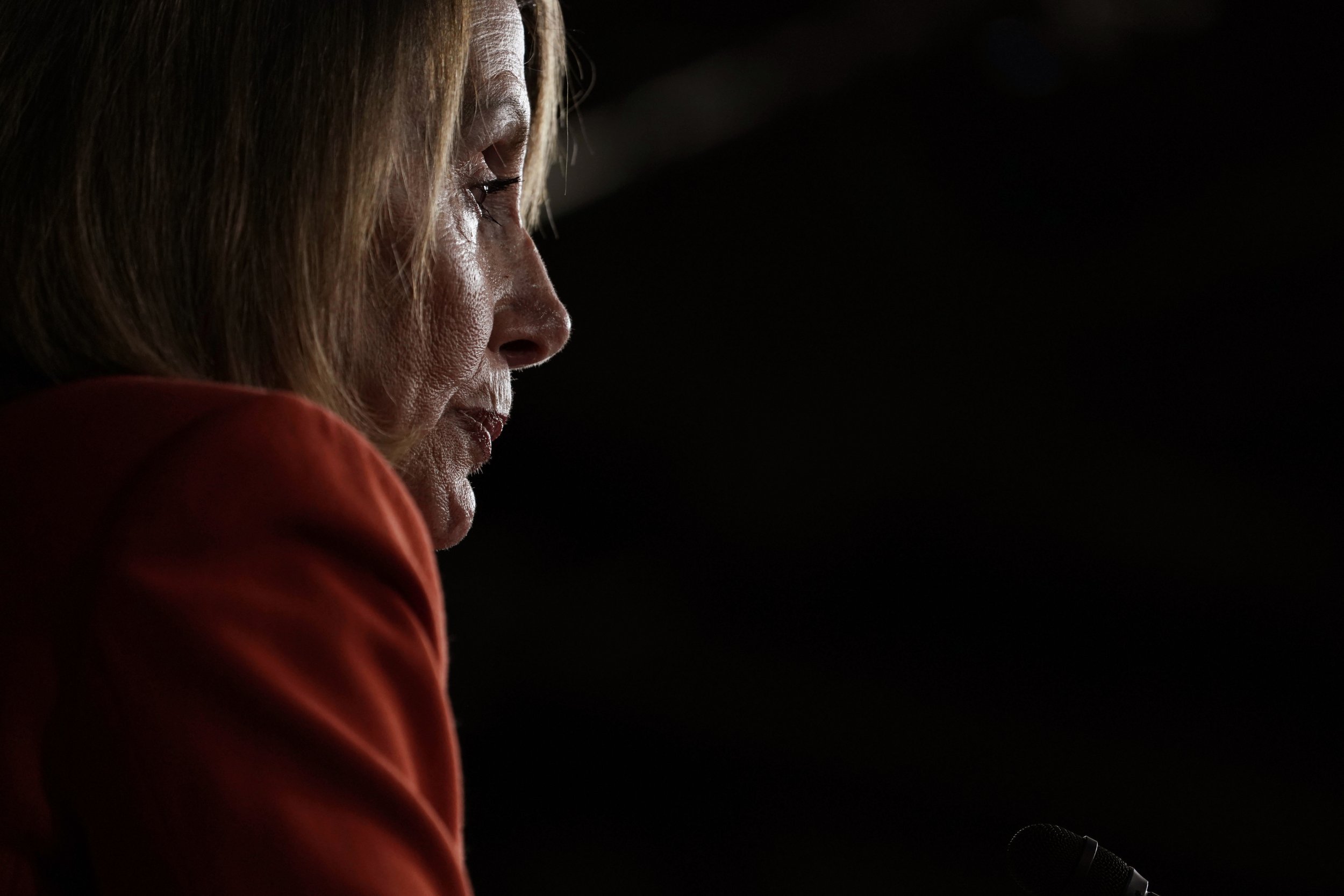
The idea that California's Nancy Pelosi wasn't going to be the next speaker of the U.S. House of Representatives was always a silly one. She's the minority leader who led her party to victory. To turn her out after all that would be both an insult and a disgrace, neither of which she deserves.
The so-called rebels who opposed her nomination were, by and large, not serious about it. It's the kind of thing one does for attention or to play to the folks back home. All the more so when the other party in the swing district you now find yourself representing made such a big deal of how liberal Pelosi would be, and you had to put daylight between her and you by promising not to vote for her. Pelosi was always going to be Speaker, something her conference confirmed when it voted in secret Wednesday to nominate her for the post.
That was the real vote. What happens on the House floor in January with everyone watching is just for show. The better questions, the ones few (if any) of the pundits will discuss openly, are how long Pelosi will last, and how she's going to govern. It's escaped the notice of most of the people who earn a living explaining Washington to the rest of America, but there are almost no more moderates left in the House Democratic Caucus. There are liberals and there are leftists, and Pelosi, oddly enough, sits somewhere in the ideological middle—a place where, to be candid, she's probably not used to being.
Pelosi can buy people off with subcommittee chairmanships and promises to earmark spending for pet projects, something Republican speakers like John Boehner and Paul Ryan—who constantly had to deal with agitators on their right itching to move faster and cut deeper—couldn't or wouldn't do. But in an age when political positions have sharpened, and the party fringe is the tail wagging the dog, this approach only goes so far. What does Pelosi do when Bernie Sanders-loving neo-socialists like Alexandria Ocasio-Cortez of New York—rapidly becoming the face of the new Democratic Party—decide the party in the House is not moving fast enough toward a single payer health care system, or toward the impeachment of the president?
If the past is any kind of prologue, Pelosi's in a tough spot. Move to the left too fast and too far—and no one knows what too far is until they get there—and all those newly elected suburbanites will start to get jumpy. Democrats from the suburbs do fine until they start voting like national Democrats – which makes them vulnerable to defeat come election time.
Pelosi's new majority isn't so big that she can let handfuls of Democrats take a walk on tough votes on immigration, gun control, abortion, and the investigation and possible impeachment of the president. The left in her party, if their public commentary is any indication, doesn't understand why it won control of the House. The repudiation of Donald Trump and the once-in-a-century midterms turnout it fueled does not translate into an endorsement of Medicare for all, repeal of the Trump tax cuts, or blocking the job-creating deregulatory thrust coming out of the administration. Trump's created jobs and people like that even if they can't stand the man personally.
The zealots coming in as part of the new majority—and there is considerably more than a handful of them —want to move the policy discussion to the left, hard and fast. That's generally not a winning position in American politics and hasn't been for almost 40 years. Even Barack Obama, who governed from there, still pretended to be a moderate.
What should make it worse, at least from Pelosi's perspective, is that many of the hard-won compromises she's going to wring out between the liberals and the left on legislation as it moves forward will be all for naught. Almost nothing that passes in the Democrat-controlled House will make it through the majority Republican U.S. Senate. Pelosi may end up with lots of vulnerable members casting politically bad votes with nothing to show for it after the gavel comes down.
All this is further complicated by the half dozen or so members of the so-called new guard who see themselves in her place, none of whom have the skills to be national leaders or the political support and muscled require to take the job from her. Pelosi will still last a term or two, but the pressure is mounting, even as she prepares to once again take the gavel, to name her successor and announce when she plans to leave. Her position is not an enviable one, and it's unlikely any of those who preceded or succeeded her in the job—and who have experience dealing with this sort of thing—is willing to give her any advice.
Newsweek contributing editor Peter Roff is has written extensively about politics, culture, and the media for U.S. News and World Report, United Press International, and various other publications. He can be reached by email at RoffColumns@GMAIL.com. Follow him on Twitter @PeterRoff
The views expressed in this article are the author's own.
Uncommon Knowledge
Newsweek is committed to challenging conventional wisdom and finding connections in the search for common ground.
Newsweek is committed to challenging conventional wisdom and finding connections in the search for common ground.
About the writer
To read how Newsweek uses AI as a newsroom tool, Click here.








